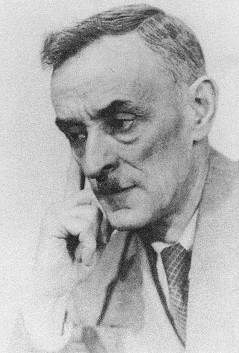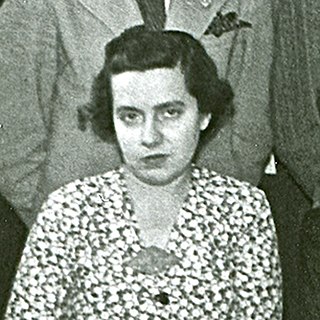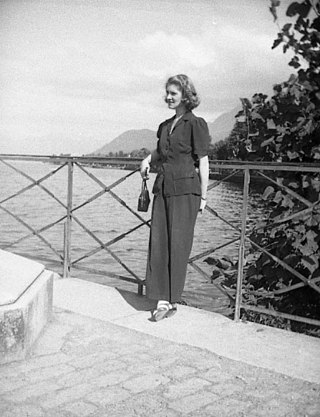Related Research Articles
Jacques Hétu was a Canadian composer and music educator. Hétu is the most frequently performed of Canadian classical composers, both within Canada and internationally.
Clermont Pépin was a Canadian pianist, composer and teacher who lived in Quebec.

Joseph Hercule Omer Létourneau was a Québécois pianist, organist, composer and orchestra conductor from Saint-Sauveur.
Georges-Émile Tanguay was a Canadian composer, organist, pianist, and music educator. An associate of the Canadian Music Centre, his compositional output is relatively small; consisting of 4 orchestral works, 4 chamber music pieces, 9 works for solo piano, 2 works for solo organ, and 4 choral works. The library at Université Laval holds many of his original manuscripts and his personal papers.
François Morel was a Canadian composer, pianist, conductor, and music educator. An associate of the Canadian Music Centre, he was made a Knight of the National Order of Quebec in 1994 and was awarded the Prix Denise-Pelletier in 1996. He has had his works premiered by the CBC Symphony Orchestra, the Montreal Symphony Orchestra, and the Philadelphia Orchestra.

Albertine Morin-Labrecque was a Canadian pianist, soprano, composer, and music educator. Her compositional output includes 4 ballets, 2 comic operas, the Chinese opera Pas-chu, 2 concertos for two pianos, the symphonic poem Le Matin, numerous symphonic works, and compositions for band. Her works have been published by a variety of companies. A square and a street in Montreal were named after her in 1984.

Jean-Marie Beaudet was a Canadian conductor, organist, pianist, radio producer, and music educator. He had a long career with the Canadian Broadcasting Corporation, serving variously as a music producer, programing director, conductor, and administrator. With the CBC Symphony Orchestra he conducted the premiere recordings of works by many Canadian composers, including pieces by Maurice Blackburn, Claude Champagne, J.-J. Gagnier, Clermont Pépin, and Healey Willan.
Françoys Joseph Arthur Maurice Bernier was a Canadian pianist, conductor, radio producer, arts administrator, and music educator. He served as the music director of the Montreal Festivals from 1956 to 1960 and was an active conductor and a producer for CBC Radio during the 1950s and early 1960s. He was the General Director of the Orchestre Symphonique de Québec from 1960 to 1966 and then the orchestra's Music Director from 1966 to 1968. He was also active as a teacher of conducting at a number of universities, notably serving as the first director of the Music Department at the University of Ottawa.
Jocelyne Binet was a Canadian composer, pianist, and music educator. She studied in Montreal and Paris, France, and returned to compose and teach music in Canada.

Pierre Rolland C.M. was a Canadian oboist, english horn player, radio broadcaster, music critic, music educator, and arts administrator. He is the father of cellist Sophie Rolland and violinist Brigitte Rolland.
Léon Bernier was a Canadian composer, conductor, pianist, arranger, accompanist, and music pedagogue. He composed and arranged music for numerous programs on Canadian radio and television, and also wrote music for a number of theatrical productions in Canada. For CBC Television he served as music director of the programs Les Coqueluches, Allo Boubou, Zoum, and Les Démons du midi, and composed music for the television dramas Edna, Le Vélo devant la porte, Pâques, Le Misanthrope, and Coup de sang among others.

Jeanne Lapointe was a Canadian academic and intellectual.
Germaine Malépart was a Canadian pianist and music educator.

Lorraine Vaillancourt, is a Canadian pianist and conductor living in Quebec.

Françoise Aubut-Pratte, née Aubut was a Canadian concert organist, and music teacher.

Marie-Thérèse Lefebvre is a Canadian musicologist and educator living in Quebec.
Anna-Marie Globenski was a Canadian pianist and teacher who taught at the École de musique Vincent-d'Indy from 1960 to 1963 and Université Laval for 30 years. She was an accompanist for the Conservatoire de musique du Québec à Montréal, appeared on CBC Radio and CBC Television and recorded three pages of music from various composers. Globenski was a member of various juries and various music competitions in Canada and Europe. She established the Fonds Fondation Anna-Marie-Globenski in 2001. In early 2005, Laval's preparatory music school was named after Globenski to celebrate 30 years of her at the institution.
Lyse Richer is a Canadian administrator and teacher of music. She taught piano at both the École de musique Vincent-d'Indy and the Université de Montréal. Richer later took on administrative roles in the management of several Quebec dance and theatre companies in the 1970s and the 1980s. She gave lectures and papers and conferences and was the authors of multiple entries on Canadian composers.
Josephte Dufresne (1929–1995) was a Canadian pianist, teacher and conservatoire director.

Roland Richard is a Canadian classical baritone and opera singer who was a frequent recitalist on CBC networks and their musical programs from the mid-1960s through to the early-1980s.
References
- 1 2 3 4 5 6 7 8 9 10 11 Potvin, Gilles (August 30, 2011). "Jeanne Landry". The Canadian Encyclopedia . Archived from the original on December 8, 2020. Retrieved December 5, 2020.
- 1 2 3 4 5 6 7 8 "Jeanne Landry" (in French). Lepine Cloutier. August 3, 2011. Archived from the original on December 8, 2020. Retrieved December 5, 2020.
- 1 2 3 4 5 6 7 Bédard, Marie-Christine (September 3, 1998). "Les passions de Jeanne" [Jeanne's passions] (in French). Université Laval. Archived from the original on December 8, 2020. Retrieved December 5, 2020.
- 1 2 "Jeanne Landry Awarded Bachelor of Music Degree" . Ottawa Citizen . November 10, 1945. p. 4. Archived from the original on December 8, 2020. Retrieved December 5, 2020– via Newspapers.com.
- 1 2 "Jeanne Landry Judged Prix d'Europe Winner" . Montreal Gazette . June 14, 1946. p. 9. Archived from the original on December 8, 2020. Retrieved December 5, 2020– via Newspapers.com.
- 1 2 3 4 "Décès de la pianiste Jeanne Landry" [Death of pianist Jeanne Landry]. Le Devoir (in French). August 4, 2011. Archived from the original on December 8, 2020. Retrieved December 5, 2020.
- ↑ "Jeanne Landry Makes Debut as Solo Pianist" . Ottawa Citizen. May 20, 1940. p. 21. Archived from the original on December 8, 2020. Retrieved December 5, 2020– via Newspapers.com.